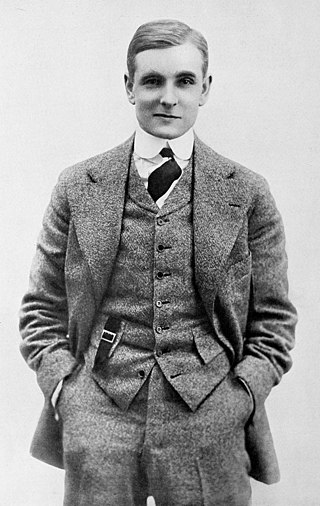
Creighton Hale was an Irish-American theatre, film, and television actor whose career extended more than a half-century, from the early 1900s to the end of the 1950s.

Orphans of the Storm is a 1921 American silent melodrama film by D. W. Griffith set in late-18th-century France, before and during the French Revolution.

The Trap is a 1922 American silent Western film directed by Robert Thornby and starring Lon Chaney and Alan Hale. It was released by Universal Pictures. The film was released in the United Kingdom under the title Heart of a Wolf. One working title for the film was Wolfbreed. The film was re-released in the U.S. in 1926.

George Archainbaud was a French-American film and television director.
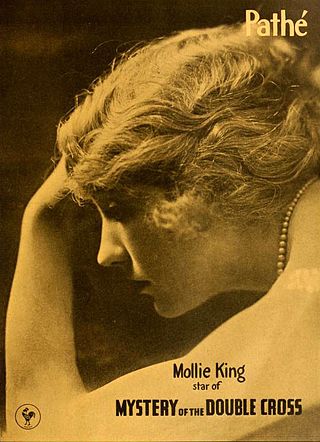
Mystery of the Double Cross is a 1917 film and one of the few American silent action film serials to survive in complete form. It was directed by Louis J. Gasnier and William Parke, from a story written by Gilson Willets, produced by the Astra Film Corporation and released in weekly chapters by Pathé, starting March 18, 1917.

Cheated Hearts is a 1921 American silent drama film directed by Hobart Henley and featuring Herbert Rawlinson, Warner Baxter, Marjorie Daw and Boris Karloff. The screenplay was written by Wallace Clifton, based on the novel Barry Gordon by William Farquar Payson. The film's tagline was "All the Exotic Glamour of the East Woven in a Livid Picture of Love". It was shot in Universal City, and is today considered a lost film.

The Probation Wife is a 1919 American silent comedy-drama film directed by Sidney Franklin and starring Norma Talmadge. Talmadge served as her own producer with distribution through Select Pictures.
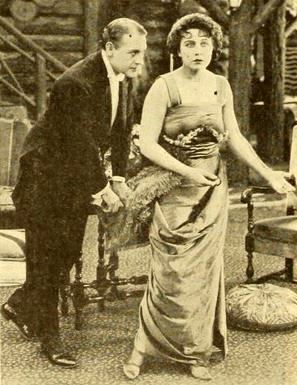
Other Men's Wives is a lost 1919 American silent drama film directed by Victor Schertzinger and written by C. Gardner Sullivan. The film stars Dorothy Dalton, Forrest Stanley, Holmes Herbert, Dell Boone, Elsa Lorimer, and Hal Clements. The film was released on June 15, 1919, by Paramount Pictures.

Bill Henry is a 1919 American silent comedy film directed by Jerome Storm, and written by Julien Josephson and Lois Zellner. The film stars Charles Ray, Edith Roberts, William A. Carroll, Bert Woodruff, Jennie Lee, and Walter Perkins. The film was released on August 17, 1919, by Paramount Pictures. A print of the film is in the Russian Gosfilmofond film archive.

Pegeen is a 1920 American silent drama film based on the 1915 novel of the same name by Eleanor Hoyt Brainerd. It was produced by Vitagraph Studios and directed by David Smith. It stars Bessie Love in the title role.
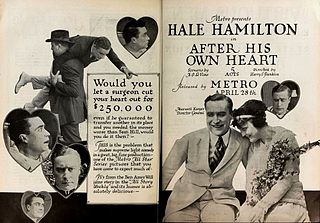
After His Own Heart is a 1919 American silent comedy-drama film based on a 1919 short story of the same name by Ben Ames Williams. It was adapted for the screen by Albert Shelby Le Vino and directed by Harry L. Franklin. The film stars Hale Hamilton and Naomi Childers and was distributed by Metro Pictures Corp., a forerunner of Metro-Goldwyn-Mayer. A copy of the film is archived at the Cinémathèque Française under the title Une Cure Merveilleuse.
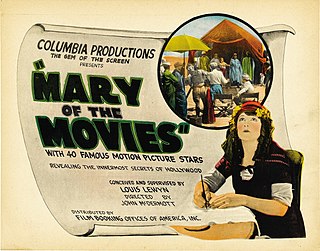
Mary of the Movies is a 1923 American silent semi-autobiographical comedy film based on the career of Marion Mack. It was written by Mack and her husband Louis Lewyn, and stars Mack and Creighton Hale. Hale and director John McDermott play fictionalized versions of themselves in the film, which was also directed by McDermott.

What Fools Men is a lost 1925 American silent drama film directed by George Archainbaud and starring Lewis Stone, Shirley Mason, and Ethel Grey Terry.

This Woman is a 1924 American silent drama film directed by Phil Rosen, written by Louis D. Lighton and Hope Loring, and starring Irene Rich, Ricardo Cortez, Louise Fazenda, Frank Elliott, Creighton Hale, and Marc McDermott. Based on the 1924 novel This Woman by Howard Rockey, it was released by Warner Bros. on November 2, 1924.
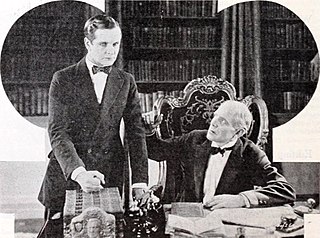
The Bridge of Sighs is a 1925 American silent drama film directed by Phil Rosen and written by Louis D. Lighton and Hope Loring. The film stars Dorothy Mackaill, Creighton Hale, Richard Tucker, Alec B. Francis, Ralph Lewis, and Cliff Saum. The film was released by Warner Bros. on January 1, 1925.
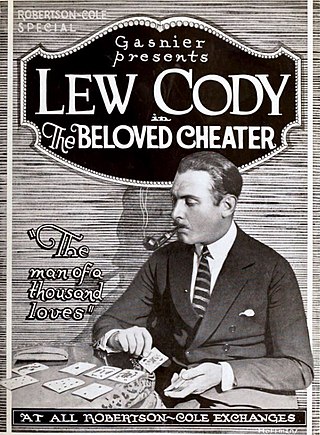
The Beloved Cheater is a 1919 American silent comedy film, directed by Christy Cabanne. It stars Lew Cody, Doris Pawn, and Eileen Percy, and was released on December 6, 1919.

The Barricade is a 1921 silent American melodrama film, directed by Christy Cabanne. It stars William H. Strauss, Katherine Spencer, and Kenneth Harlan, and was released on October 2, 1921.
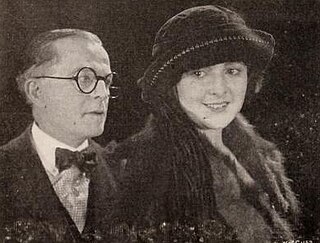
At the Stage Door, also known by its working title Women of Conquest, is a 1921 silent American romantic drama film directed by Christy Cabanne. It stars Billie Dove, Huntley Gordon, and Miriam Battista, and was released on December 11, 1921. The film gives a glimpse into the behind-the-scenes reality of life in the New York theater, as seen by a small town girl trying to make it in the big city. The picture received mixed reviews. This was Dove's first time on film, having moved over from the Ziegfeld Follies.

Burnt Wings is a 1920 American drama film directed by Christy Cabanne and starring Josephine Hill, Frank Mayo, and Rudolph Christians. It was released on March 29, 1920.
The Avenging Trail is a 1917 American silent drama film directed by Francis Ford and starring Harold Lockwood, Sally Crute, and Joseph Dailey. It was released on December 31, 1917.



















